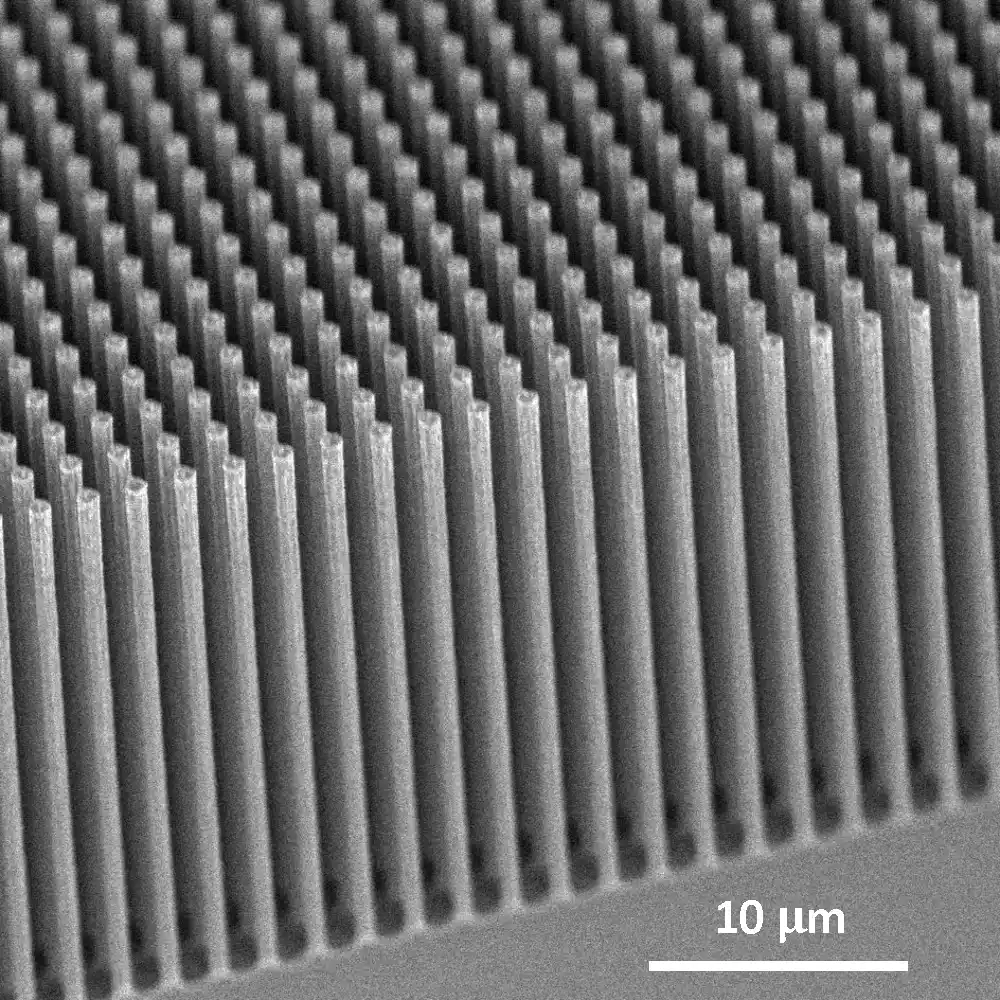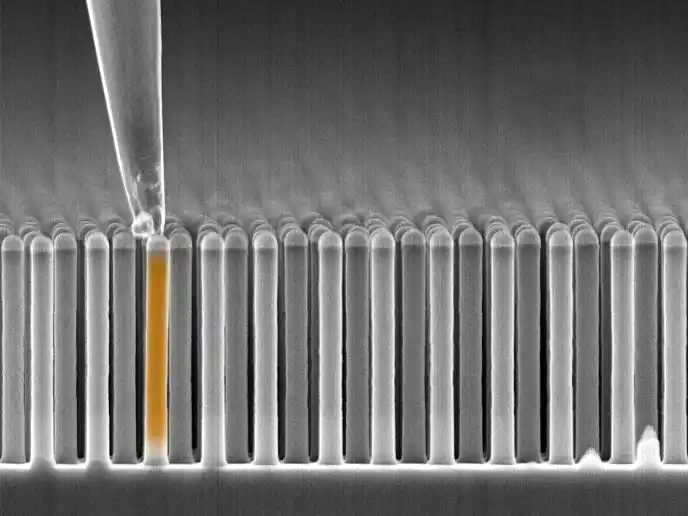افشین رشید
اُستادیار ؛ عضو هیات علمی دانشگاه آزاد اسلامی واحد علوم و تحقیقات تهران
651 یادداشت منتشر شدهNanowire Propagation Wafer Silicone wafer and Mounting or Growing Nanowire Particles

Note: Silicon wafer substrates can be used for sample substrates, microfabrication, substrates for nanowires, or biological substrates.
A useful flat substrate for bonding nanowires and for biological applications, Si (silicon wafer) has glass-like properties and can be used to mount or grow nanowire particles. It can be easily cleaned or used as a whole wafer for nanowire propagation. Silicon nanowire arrays or SiNWs are vertical arrays of silicon nanowires on a flat crystalline silicon wafer substrate. These nanowires are fabricated by a catalytic oxidation and dissolution of Si in the presence of metal catalyst nanoparticles - a self-organized process commonly known as metal-chemical enhanced process with the aid of silicon wafers . For biological applications, silicon resembles glass, making it a suitable support for growing and/or mounting nanoparticles on nanowires. For nanoelectronic applications, it is an ideal sample substrate for small nanoscale particles due to its low background signal and highly polished surface.

Nanowire growth processes on silicon wafers make Si nanowire arrays more reproducible and uniform, and allow the properties of the nanowires to be tuned. The nanowire growth process always involves the deposition of a metal and bonding in a solution containing hydrofluoric acid (HF) and an oxidant. Silicon is only formed where the metal nanoparticles touch the silicon, resulting in electrochemical reactions involving the nanoparticles . Whatever silicon is carried, the nanoparticles move into the resulting nanowires. Since the silicon is only locally doped, this process can result in very high aspect ratio features in the nanowires.
Conclusion :
Silicone wafers For biological applications, silicon resembles glass, making it a suitable support for growing and/or mounting nanoparticles on nanowires. For nanoelectronic applications, it is an ideal sample substrate for small nanoscale particles due to its low background signal and highly polished surface.